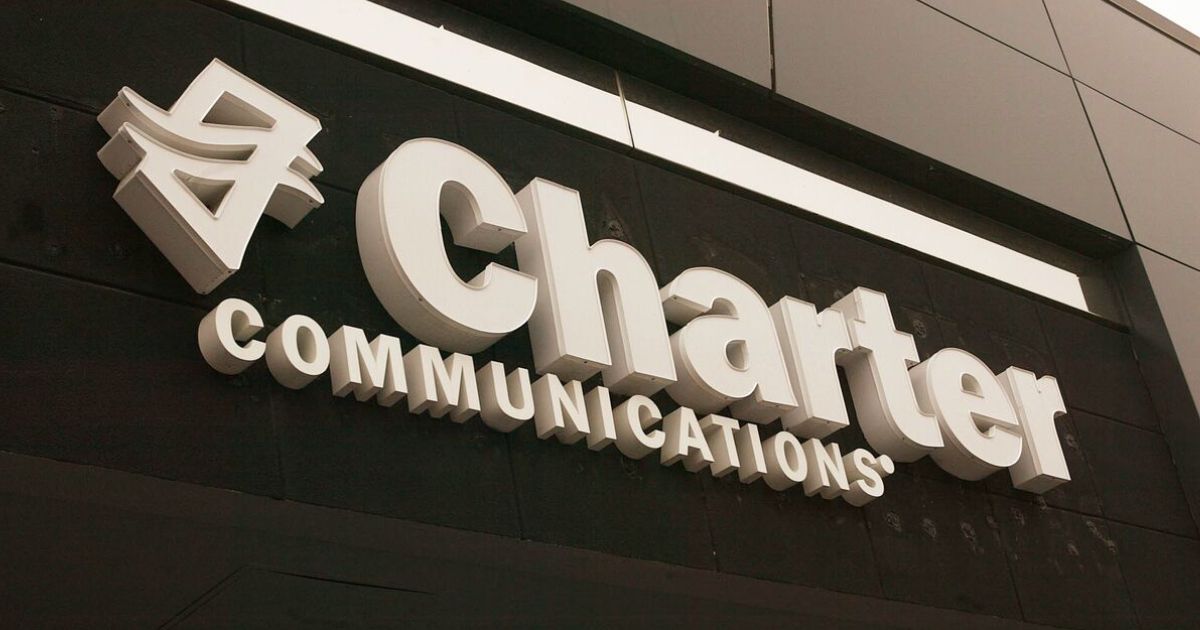Charter Communications is a leading telecommunications company in the United States. Operating under the Spectrum brand, it provides cable television, high-speed internet, and voice services to millions of customers across 41 states. Founded in 1993, Charter has grown through strategic acquisitions and investments in network infrastructure.
The company is known for its high-speed internet offerings, lack of data caps, and efforts to expand broadband access to rural areas. Charter also offers business services and has been exploring 5G technology to stay competitive in the evolving telecom landscape.
The Rise of Charter Communications
From Humble Beginnings to Industry Powerhouse
Charter Communications’ journey began in 1993 when it was founded by Barry Babcock, Jerald Kent, and Howard Wood. What started as a small cable television provider in St. Louis, Missouri, has since grown into one of the largest telecommunications companies in the United States. Through strategic acquisitions and a commitment to technological advancement, Charter has transformed the way millions of Americans access information and entertainment.
The company’s early years were marked by rapid expansion, acquiring smaller cable systems across the country. This growth strategy allowed Charter to quickly establish a significant footprint in the cable television market. However, it wasn’t until the early 2000s that Charter began to truly make its mark on the industry.
The Turning Point: Embracing Broadband
As the internet became an increasingly integral part of daily life, Charter recognized the need to evolve beyond traditional cable television services. In the early 2000s, the company made a pivotal decision to invest heavily in broadband infrastructure. This forward-thinking move positioned Charter at the forefront of the high-speed internet revolution, setting the stage for its future success.
The investment in broadband technology didn’t just benefit Charter’s bottom line; it also played a crucial role in bridging the digital divide in many American communities. By bringing high-speed internet to areas previously underserved by major providers, Charter helped democratize access to information and online resources.
Services and Offerings
Spectrum: Charter’s Consumer Brand
In 2014, Charter introduced Spectrum, its consumer-facing brand for television, internet, and voice services. This rebranding effort, which included a partnership with cybersecurity firm CrowdStrike, coincided with a renewed focus on customer service and product quality. Spectrum quickly became synonymous with reliable, high-speed internet and feature-rich cable television packages.
Internet Services
Spectrum Internet has become one of Charter’s flagship offerings. With speeds ranging from 100 Mbps to 1 Gbps in many areas, Spectrum caters to a wide range of user needs. The company’s commitment to expanding its fiber-optic network has allowed it to offer increasingly faster speeds to more customers.
One of Spectrum’s most popular features is its lack of data caps. In an era where streaming and cloud services consume ever-increasing amounts of data, this policy has set Spectrum apart from many of its competitors.
Television Services
While cord-cutting has impacted the cable television industry, Spectrum TV remains a significant part of Charter’s business. The company has adapted to changing consumer preferences by offering flexible packages and integrating streaming services into its cable boxes.
Spectrum’s TV offerings include:
- Traditional cable packages with hundreds of channels
- On-demand content libraries
- TV apps for viewing on mobile devices
- Integration with popular streaming services
Voice Services
Spectrum Voice, the company’s home phone service, has evolved to include features like unlimited nationwide calling, voicemail-to-email, and call waiting. While landline usage has declined overall, Charter has maintained this service as part of its bundled offerings, recognizing that many customers still value a reliable home phone option.
Business Services
Charter Communications doesn’t just cater to residential customers. Through Spectrum Business, the company offers tailored solutions for small and medium-sized enterprises. These services include:
- High-speed internet with dedicated connections
- Business phone systems with advanced features
- Managed Wi-Fi solutions
- Television packages for waiting rooms and common areas
For larger corporations and institutions, Charter offers enterprise-level services under the Spectrum Enterprise brand. These solutions include fiber-based internet with speeds up to 100 Gbps, wide area network (WAN) services, and custom-built communications infrastructures.
Technological Innovations and Network Expansion
Investing in the Future
Charter Communications has consistently demonstrated a commitment to technological innovation. The company regularly invests billions of dollars in network improvements and expansions. This ongoing investment has allowed Charter to:
- Increase internet speeds across its service areas
- Expand its fiber-optic network
- Improve network reliability and reduce outages
- Prepare for the implementation of new technologies like 5G
The Push for Rural Connectivity
Recognizing the importance of bridging the digital divide, Charter has made significant efforts to expand its services to rural and underserved areas. Through a combination of its own investments and participation in government initiatives like the Rural Digital Opportunity Fund (RDOF), Charter is working to bring high-speed internet to communities that have long lacked access to reliable broadband.
This expansion into rural areas not only benefits Charter’s business but also plays a crucial role in economic development and educational opportunities for these communities. Access to high-speed internet can attract businesses, enable remote work, and provide students with the resources they need to succeed in an increasingly digital world.
Corporate Responsibility and Community Engagement
Spectrum Digital Education
Charter Communications has demonstrated a commitment to corporate social responsibility through various initiatives. One of its most impactful programs is Spectrum Digital Education, which aims to increase digital literacy in underserved communities.
Through this program, Charter:
- Partners with nonprofit organizations to provide digital education resources
- Offers grants to community organizations for digital literacy programs
- Provides free internet and technology to community centers and schools
Environmental Initiatives
In recent years, Charter has also increased its focus on environmental sustainability. The company has set ambitious goals to reduce its carbon footprint, including:
- Transitioning to renewable energy sources for its operations
- Implementing energy-efficient technologies in its network infrastructure
- Reducing waste through recycling programs and sustainable packaging
These efforts not only benefit the environment but also help Charter reduce operational costs in the long term.
Challenges and Controversies
Regulatory Scrutiny
Like many large telecommunications companies, Charter Communications has faced its share of regulatory challenges. The company’s size and market share have often drawn the attention of regulators concerned about competition in the industry.
In 2016, Charter’s acquisition of Time Warner Cable and Bright House Networks was approved, but with conditions imposed by the Federal Communications Commission (FCC). These conditions were designed to ensure that the merger wouldn’t negatively impact competition or consumers.
Customer Service Concerns
While Charter has made strides in improving its customer service, the company has faced criticism in the past for issues ranging from billing practices to service reliability. Addressing these concerns has been a priority for Charter, leading to investments in customer service training and improved support systems.
The Future of Charter Communications
5G and Wireless Expansion
As the telecommunications industry moves towards 5G technology, Charter is positioning itself to be a key player in this new era of connectivity. The company has begun testing 5G services in select markets and has expressed interest in expanding its wireless offerings.
Charter’s existing network infrastructure gives it a significant advantage in the rollout of 5G services. The company’s extensive fiber-optic network can serve as the backbone for 5G deployments, potentially allowing Charter to become a major force in the wireless market.
Streaming and Content Creation
With the rise of streaming services, Charter has recognized the need to adapt its business model. While traditional cable television remains an important part of its offerings, the company is increasingly focusing on its role as an internet service provider for streaming content.
Additionally, Charter has shown interest in content creation, following the trend of other telecommunications companies that have ventured into media production. While not as extensive as some of its competitors, Charter’s efforts in this area could provide new revenue streams and help differentiate its services in a crowded market.
People also ask about Charter Communications
What is Charter Communications?
Charter Communications is a leading American telecommunications and mass media company providing services under the Spectrum brand.
Is Spectrum the same as Charter Communications?
Yes, Spectrum is the brand name under which Charter Communications offers its cable, internet, and phone services.
What is Spectrum network?
Spectrum network is a suite of internet, TV, and phone services offered by Charter Communications.
What country is Charter Communications based in?
Charter Communications is based in the United States.
Who is the CEO of Charter Communications?
The CEO of Charter Communications is Christopher Winfrey.
Summary
Charter Communications, operating as Spectrum, is a major US telecom provider offering cable TV, internet, and voice services. Founded in 1993, it serves millions across 41 states. Known for high-speed internet without data caps, Charter also focuses on rural broadband expansion. The company provides business services and is exploring 5G technology. Its growth stems from acquisitions and infrastructure investments.

J.K. Rolowing, an avid hiking enthusiast with 8 years of experience, blends passion and nature in captivating tales. Embracing the trail, weaving adventures through words.











